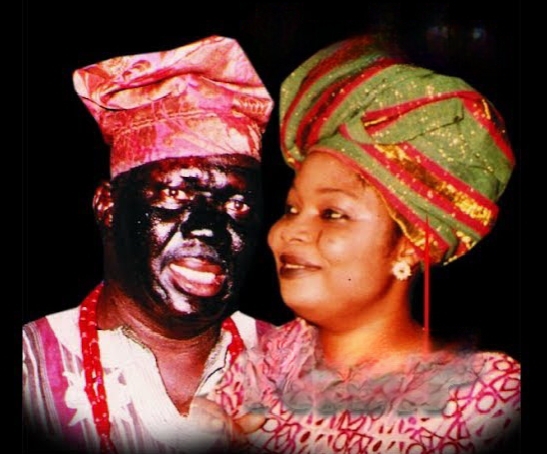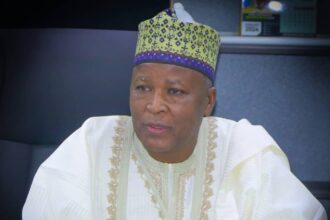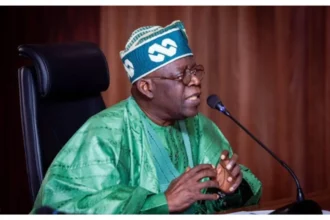There are lives that flicker across a screen and disappear, and then there are lives that linger long after the final frame, haunting the spaces between memory and legend. Baba Suwe and Omoladun Kenkelewu were both. Their laughter could fill a room, their timing could bend sorrow into joy, and yet, behind the bright lights and booming applause, their hearts carried stories few dared to see.
- The Boy from Lagos Island
- The Woman Called Omoladun
- When Two Roads Converged
- Shadows Behind the Stage
- Cinematic Collaborations: A Legacy in Film
- September 2009 — The Day the Laughter Died
- NDLEA and the Humiliation of a Comedian
- Years of Decline, the Search for Meaning and the Curtain falling
- Legacy of a Power Couple
- The Concluding Lens— The Laughter That Echoes Still
In the crowded alleys of Lagos, in small cinemas and living rooms where families huddled to watch their films, they became more than entertainers — they became companions in resilience. He wielded humor like a sword, cutting through despair; she wielded it like a balm, soothing the wounds of a nation that was learning, slowly, to find joy amidst struggle. Together, they built an empire of laughter, yet every smile they conjured hid a quiet gravity, a private storm that threatened to unravel them at any moment.
This is a story not of the jokes they told, but of the lives they lived in the shadow of those jokes. It is a story of endurance — of love tested by fame, of partnership strained by circumstance, of laughter born from the same hands that endured pain. It is a story that refuses to fade, because the echoes of what they carried are still audible, still visible, in every tear and every chuckle their audiences shed.
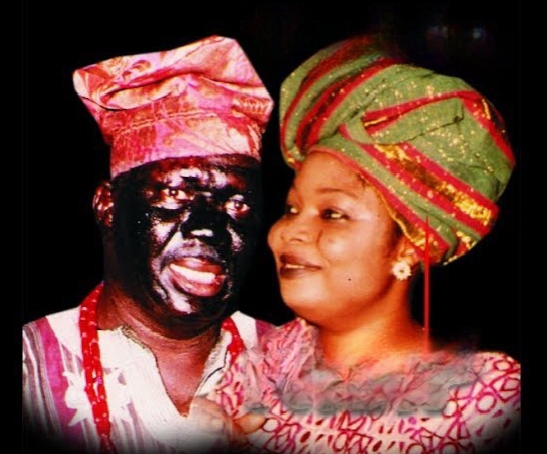
To enter their world is to step into the spaces where joy and sorrow meet, where comedy becomes survival, and where the human spirit — fragile, stubborn, and brilliant — refuses to bow. This is not just a story about Nollywood; it is a story about what it means to endure, to love, and to leave a mark that time cannot erase.
The Boy from Lagos Island
Babatunde Omidina, later crowned “Baba Suwe,” was born on August 22, 1958, in Lagos Island, to parents from Ikorodu, Lagos State. His early life carried no hint that he would one day redefine Yoruba comedy. He attended Jamaitul Islamia Primary School, then moved to Osogbo for further schooling, and later earned his West African School Certificate at Ifeoluwa Grammar School.
He wasn’t born into privilege. The Lagos of his childhood was not the cosmopolitan hub of luxury malls and nightclubs we know today — it was crowded, chaotic, and defined by survival. For young Babatunde, the quickest way to survive was to make others laugh. His first performance, at Amuto Playground in Lagos Island, earned him no money but plenty of claps. It was then he realized that laughter was more than amusement — it was currency.
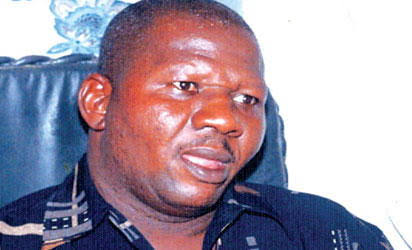
By the 1980s and 1990s, he had become a fixture in Yoruba theatre troupes. His breakthrough came in movies like Omolasan and Iru Esin (1997), where his improvisational humor turned minor scenes into unforgettable moments. He didn’t just tell jokes; he embodied them, with body language and voice modulation that turned ordinary lines into cultural catchphrases.
The Woman Called Omoladun
Monsurat Oyenike Omidina, better known as Omoladun Kenkelewu, was no mere shadow in her husband’s story. She was an actress, a comedienne, and a woman whose presence balanced Baba Suwe’s excesses. While he was theatrical and loud, she was subtle, her humor rooted in everyday Yoruba domestic realities — the mother-in-law gossip, the market woman’s bargaining, the wife’s quiet rebuttal to a domineering husband.
To her colleagues, Omoladun was not just Baba Suwe’s wife; she was a performer in her own right. She brought dignity to roles that might otherwise have been dismissed as fillers. When she joined Baba Suwe on stage or in films, audiences saw not just two actors but a marriage laid bare — the arguments, reconciliations, misunderstandings, and joys that made Yoruba households both chaotic and beautiful.

When Two Roads Converged
By 1995, Baba Suwe and Omoladun were married. For Nollywood’s Yoruba comedy world, it was as if two rivers had joined, amplifying each other’s current. On screen, their chemistry felt authentic because it was — the jokes mirrored real disagreements, and the reconciliations often carried the texture of genuine affection.
Their marriage wasn’t just personal; it was professional branding. They became Nollywood’s “comedy power couple,” a phrase that carried weight in the 1990s and early 2000s when Yoruba home videos dominated Nigerian living rooms. In a society where laughter often served as medicine for poverty and instability, they provided consistent doses.
But behind the laughter was a more complicated reality — one involving a first wife who felt abandoned, rumors of professional sabotage, and cracks in the mirror of what seemed like a perfect union.
Shadows Behind the Stage
Before Omoladun, Baba Suwe had been married to Ayodele Omidina, a woman who stood by him from as far back as 1979. Ayodele later revealed that when Baba Suwe shifted to Omoladun, she was abruptly abandoned without explanation. She claimed that the industry itself turned against her — that Baba Suwe allegedly told producers she was no longer available for roles, painted her as a “full housewife.”
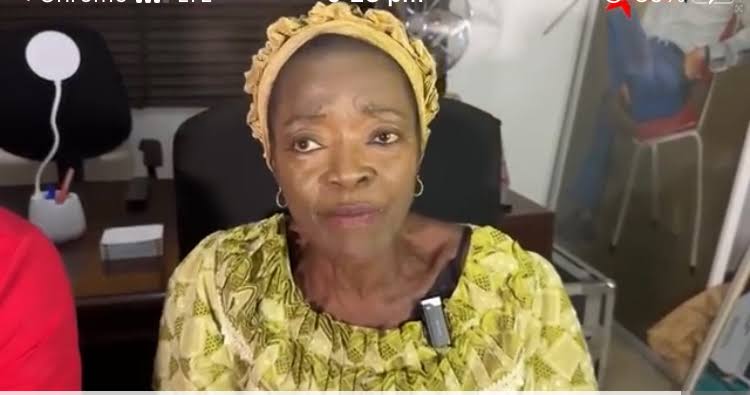
Her story complicates the narrative of Nollywood’s happy comedy couple. It shows that the spotlight often blinds us to the shadows it casts. For Ayodele, comedy became tragedy, and the career she once dreamed of was left in ruins.
Cinematic Collaborations: A Legacy in Film
Baba Suwe and Omoladun Kenkelewu’s on-screen partnership is a testament to their shared comedic genius. Their collaborations brought to life numerous Yoruba films that resonated with audiences across generations. Some notable films include:
“Irunmu Lowo“: A classic that showcased their impeccable timing and chemistry.
“Oko Yoyo“: A film that catapulted Omoladun into the limelight, where her character’s name, Kenkelewu, became synonymous with her comedic prowess.

“Atorun Dorun“: Another memorable film that highlighted their dynamic performances.
These films not only entertained but also reflected the societal nuances of their time, made them timeless pieces in Yoruba cinema.
September 2009 — The Day the Laughter Died
Omoladun’s death on September 1, 2009, was sudden. Different accounts circulated: illness, stress, and whispers of mysteries left unexplained. A documentary later released, Iku Omoladun (The Death of Omoladun), attempted to clarify controversies but only added layers of questions.
For Baba Suwe, the loss was devastating. He repeatedly described her as “the only one who truly understood me.” Without her, the home felt empty, the stage incomplete. Friends and colleagues noted that his once-vibrant energy dimmed after her passing.
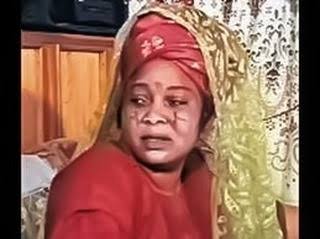
NDLEA and the Humiliation of a Comedian
If 2009 was defined by personal grief, 2011 brought public humiliation. On October 12, 2011, Baba Suwe was arrested at Lagos Airport by the NDLEA, accused of swallowing cocaine pellets after a body scanner allegedly detected suspicious images in his stomach. He was detained for three weeks under national glare.
But after weeks of observation, no drugs were found. A court later ruled his detention illegal, awarding him compensation and ordering NDLEA to apologize publicly. Yet the damage was done. His reputation took a hit, roles declined, and whispers of guilt lingered despite legal vindication.
For a man already mourning Omoladun, the scandal deepened his loneliness. “Everyone is avoiding me,” he admitted in later interviews.

Years of Decline, the Search for Meaning and the Curtain falling
The years after 2011 were marked by financial struggles and health challenges. He spoke of plans to remarry but insisted never to marry an actress again — a decision rooted in his memories of Omoladun, who he said was irreplaceable.
On November 22, 2021, Baba Suwe died after a prolonged illness. He was buried in his Ikorodu home three days later. Tributes poured in, not only for his comedy but also for the resilience he showed in the face of scandal and personal loss. Lagos State Governor Babajide Sanwo-Olu called his life “fulfilled.”
His death, like Omoladun’s, reignited conversations about their shared legacy. For fans, their love story was both inspiring and heartbreaking — a reminder that behind every mask of comedy lies a real human story.
His daughter with Omoladun, Alimat, later shared photos and videos proving her parentage, including images of her mother holding her as a baby and the side-by-side graves of Baba Suwe and Omoladun. It was a reminder that even in death, the family was still bound by rumor and the burden of proof.
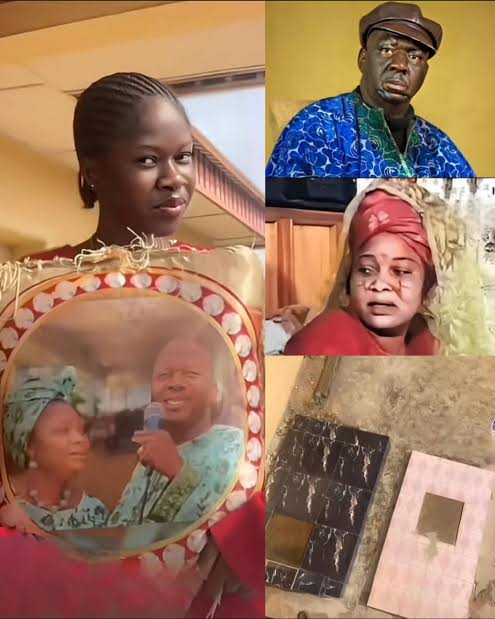
Legacy of a Power Couple
Together, Baba Suwe and Omoladun changed Yoruba comedy. He pioneered skit-making in Nigeria, using short comic inserts in films long before Instagram skits became a phenomenon. She grounded comedic narratives with subtlety and domestic realism.
But their legacy isn’t just artistic — it’s human. It is the story of love tested by betrayal, of laughter silenced by death, of careers derailed by scandal, and of a family forced to defend its truth in public.
The Concluding Lens— The Laughter That Echoes Still
Every Nigerian who grew up watching Yoruba films of the 1990s and 2000s carries an imprint of Baba Suwe and Omoladun. Their scenes were more than comic relief; they were slices of ordinary life reframed through laughter.
Yet their story also warns us: fame magnifies love, but it also magnifies loss. Theirs was a marriage celebrated in public but complicated in private, a union remembered for laughter but shadowed by grief.
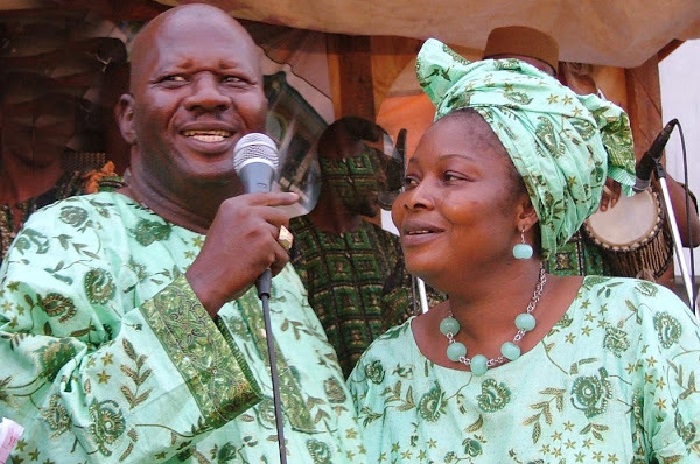
Today, as Nollywood grows more global, their story stands as a reminder of the sacrifices that built the industry — and the personal costs that often go unseen. For all the laughter they gave, what endures most is the silence they left behind.

